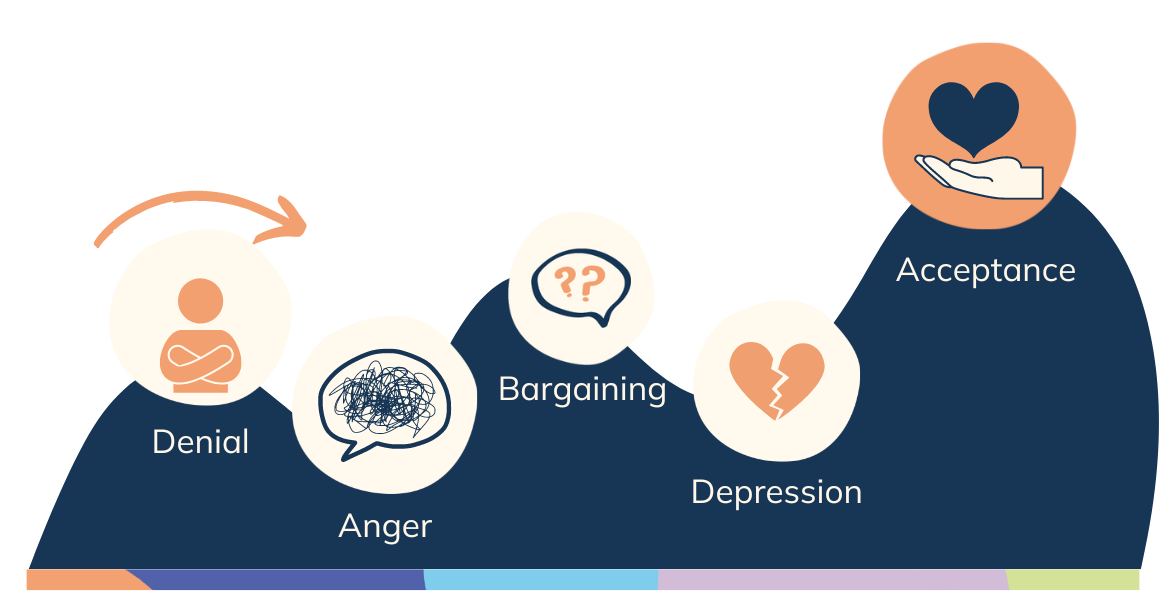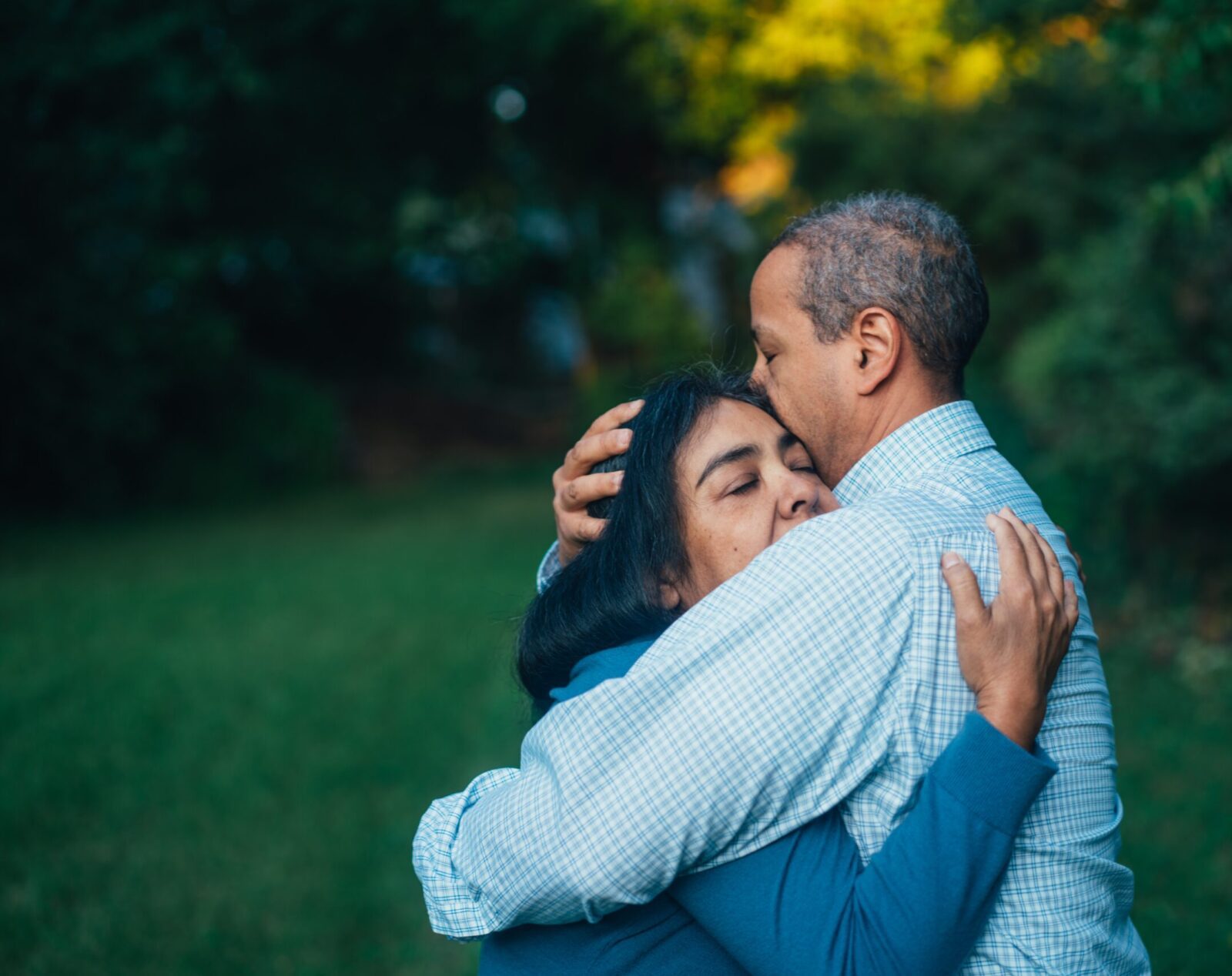Losing a pregnancy can cause complex feelings that demand your attention, particularly when connecting with your pregnancy and baby. Strong emotions, especially grief, can linger long afterward. There’s no “right” or “wrong” way to feel after a traumatic experience like miscarriage.
Many people report that specific events and reminders create feelings of distress. Such events include:
- Special dates or milestones can be upsetting, such as the date when the baby was due
- Subsequent pregnancy/pregnancies
- Seeing other people pregnant
- Attending events where newborns and children are around
- Family gatherings
- Trying to conceive again
For many, the pain of loss gets better with time. Many people are familiar with the different stages of grief. These stages of grief may not appear as a linear process, and people may move through this cycle multiple times.
Stages of Grief

Denial
You may be in a state of shock or disbelief and numbness and have not yet fully come to terms with the fact that you have experienced a miscarriage.
Anger
Perhaps you are questioning why your miscarriage occurred and want to know the cause. You may also feel angry with others for not reacting or providing the support you need. Or you may feel mad at yourself if you believe that you did something to cause the miscarriage or angry that your body has failed you. It is important to know that it is highly unlikely that you have done anything to cause your miscarriage.
Bargaining
You may start imagining things that you could have done differently to prevent your miscarriage, or you may begin to start seeking answers and support. Again, it is essential to know that there is nothing that you or your doctor could have done to stop the miscarriage once it had started, and it is highly unlikely that you have done something to cause your miscarriage.
Depression
It is okay to feel sad, withdrawn, and other feelings when grieving. These feelings can linger long after your miscarriage, and there are support services available to help you cope with and manage your emotions.
Acceptance
When you can fully acknowledge all that you have experienced, and you can comprehend the loss of your pregnancy acceptance will come. It is not necessarily a state without feelings, but you can grasp this reality as it is, without unnecessary self-blame or recrimination.
I think seeing a psychologist was probably the best thing… because they know how to direct you in grieving, in dealing with the grief. And I guess as I said, like family and friends, people who haven’t experienced it, just don’t really know what to say, and people just don’t really talk about it.
How can I cope with grief?
Acknowledge and allow your emotions to ebb and flow over time.
Many people experience intense sadness and pain, while others may feel other emotions. Trust that this is how you feel, that this makes sense, and that there is no need to judge this. It is important to understand that you may experience grief differently from others including your partner. You will react in your way and grieve at your own pace. It can be discouraging to compare your situation to others.
Seek support
For many people speaking to someone about your loss and sharing your experiences can be very helpful. See our finding support pages to see who you can talk to about your loss.
Create memories of your pregnancy
For some people, acknowledging and creating memories of your baby is a very important thing to do during your grieving process. You can find ways to remember your baby on our page.
Practice self-care
Be kind to yourself following a miscarriage. Allow yourself time to reflect and look after your body and mind. Consider taking some time off work. Self-care takes many forms, such as exercise, meditation, journaling, or other creative outlets, seeing friends or family, exercising, or planning a holiday. Seeking counselling or joining a support group can also be beneficial. Self-care can be simple daily acts like a bath or a massage.
Sometimes self-care means saying ‘no’ to social events that will trigger your grief, such as ones pregnant women, newborns, or children might be. It can be stressful to say ‘no’ for fear of offending others. But sometimes, this is the best thing at the time to provide space for you to grieve.
…even seeing people in the street, talking to people who’d become pregnant or people who were about to have kids, or people who had families…it just evoked too much sadness and grief.
Finding Support
-
Finding Support
Find Australian based services that offer support
-
When should I seek mental health care?
Information on when you should seek support




